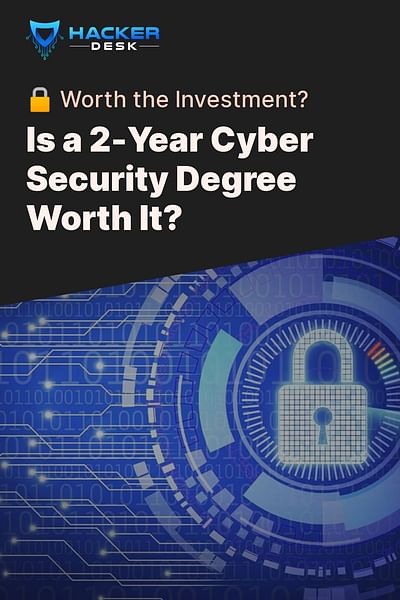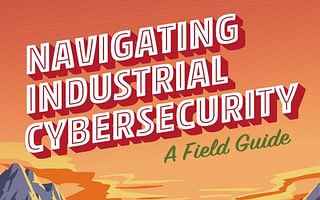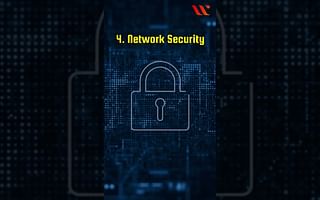Dean Reilly is a seasoned professional in penetration testing and ethical hacking. His unique methodology in uncovering security vulnerabilities has led to numerous organizations bolstering their cybersecurity measures. Dean strongly advocates for the dissemination of knowledge and frequently shares his insights on ethical hacking.
Absolutely! Two-year cyber security degrees can be a valuable investment in your future. While a four-year degree may be the traditional path, a two-year degree offers several benefits that make it worth considering. In this answer, I'll explain why a two-year cyber security degree can be a smart choice, the career prospects it opens up, and how it can provide a solid return on investment (ROI).
First and foremost, a two-year cyber security degree provides a focused and practical education. These programs are designed to equip you with the essential skills and knowledge needed to enter the workforce quickly. You'll learn about network security, ethical hacking, incident response, and other critical areas of cyber security. The curriculum is often hands-on, allowing you to gain real-world experience and develop practical skills that employers value.
One of the key advantages of a two-year degree is the shorter time commitment. While a four-year degree requires a significant investment of time and money, a two-year program allows you to enter the job market sooner. This can be especially beneficial in the fast-paced field of cyber security, where demand for skilled professionals is high. By completing your degree in two years, you can start your career earlier and begin earning a competitive salary.
Moreover, the cost of a two-year cyber security degree is often lower compared to a four-year program. Tuition fees, living expenses, and other costs can add up quickly, but a two-year degree can help you save money without compromising on the quality of education. This makes it an attractive option for those who want to pursue a career in cyber security without taking on excessive student loan debt.
Now, let's talk about the career prospects. The field of cyber security is growing rapidly, and the demand for skilled professionals is skyrocketing. According to industry reports, there is a significant shortage of cyber security experts, and this gap is expected to widen in the coming years. This means that job opportunities in cyber security are abundant, and employers are actively seeking qualified candidates.
With a two-year cyber security degree, you can qualify for entry-level positions such as security analyst, network administrator, or incident responder. These roles provide a solid foundation for your career and allow you to gain practical experience. As you progress and gain more experience, you can pursue advanced certifications and further specialize in areas like penetration testing, digital forensics, or security architecture.
In terms of ROI, a two-year cyber security degree can provide a solid return on investment. The starting salaries for cyber security professionals are often competitive, and as you gain experience and expertise, your earning potential increases significantly. Additionally, the skills and knowledge you acquire during your degree program are highly transferable, meaning you can apply them in various industries and roles.
In conclusion, two-year cyber security degrees are definitely worth the investment. They offer a focused and practical education, allow you to enter the job market sooner, and provide excellent career prospects. With the growing demand for cyber security professionals, a two-year degree can open doors to a rewarding and lucrative career. So, if you're passionate about cyber security and want to kickstart your career quickly, a two-year degree is a smart choice.
Remember, at HackerDesk, we're here to provide you with the latest insights and practical advice on all things related to cyber security. Stay tuned for more informative articles and resources to help you navigate the exciting world of cyber security.















